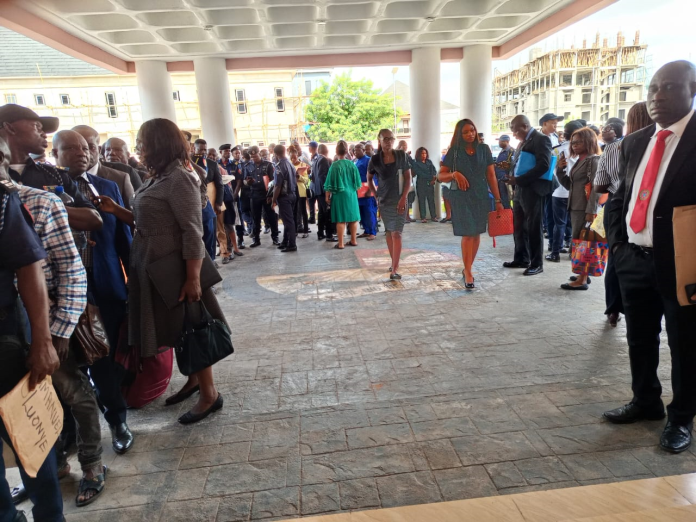THE Delta State Government deserves commendation for its bold and uncompromising stance on sanitising the civil service through the ongoing workers’ verification exercise. Truly, the initiative, though met with mixed emotions, is an essential step towards restoring integrity, efficiency and accountability in the state’s public sector.
For too long, the system was burdened by falsified records, ghost workers and discrepancies in personnel data, flaws that crippled productivity and drained public finances.
The recent revelation that the ongoing exercise, tagged Public Service Staff Verification Exercise, has retired 493 workers from the state payroll is exciting and goes to justify the existence of a panel to examine service records. According to the interim report from the committee, while 151 workers were retired for presenting fake documents, 340 were sacked for being overage, and two retired for absconding without justification.
A similar exercise by a Verification Committee on Age Discrepancy and Date of Birth and Employment of Public Officers in Delta State, headed by former Chairman of State Civil Service Commission (CSC), Dame Nkem Okwuofu, in 2017, made a stunning discovery.
Presenting its final report to former Governor, Dr. Ifeanyi Okowa, the committee disclosed that 1,695 workers were cleared of discrepancies.
Also, 137 were retired, and 810 had their dates of birth and employment corrected, 2,085 verified and affirmed, while 402 were absent. Speaking in a recent interview, the Chairman of the Delta State Bureau of Local Government Pensions, Mr. Benjamin Igo, a retired Permanent Secretary, captured the essence of the reform when he described the exercise as a necessary measure to ensure accuracy in personnel records, not a witch-hunt. We agree with him that such fraudulent acts distort the system, inflate the wage bill, and block opportunities for younger and qualified Deltans waiting to serve.
Over the years, the Nigerian public service, both at the federal and state levels, has become notorious for inefficiency largely because of weak personnel management and unchecked corruption. Ghost workers, fake certificates, and forged employment histories are recurring problems that bleed the treasury.
The move to verify workers is, however, viewed through a broader lens. This is not merely about catching culprits; it is about resetting the moral compass of public service. A clean, transparent record system strengthens institutional integrity and ensures that only those who merit their positions remain.
Bearing in mind that Delta State’s civil service is one of the largest in the country; the exercise should not be seen as a means to prune down the service but a step to sanitise it. The truth is that an oversized, inefficient workforce benefits no one. Rationalising the system, not through arbitrary retrenchment but through verification, helps to create a leaner, more competent, and more productive service. It also opens up employment opportunities for younger professionals who are brimming with ideas but locked out by an ageing, static bureaucracy.
It is our view that the exercise should not end at verification. The government must institutionalise continuous monitoring mechanisms, beginning from the entry stage of employment. Recruitment into the service should be transparent, merit-based, and digitally recorded to prevent falsification from the outset.
Furthermore, the problem of age falsification is partly driven by fear — fear of delayed pension payments and post-retirement hardship. To tackle this, the government must fix the pension system. Prompt payment of retirement benefits, within six months of exit, would discourage falsification and rebuild trust.
The verification exercise also sends a strong moral message: that integrity still matters in public service. Cheating the system for personal gain eventually undermines the same system that sustains everyone. The reward for deceit should never be comfort; it should be exposure and accountability.
As the committee continues its work, it deserves the cooperation of all stakeholders, Ministries, Departments, and Agencies (MDAs), labour unions, and pension offices. Transparency and fairness must remain the guiding principles.
Ultimately, the ongoing verification in Delta State is more than an audit; it is a moral and administrative reset. If properly sustained, it will restore discipline, inspire public confidence, and build a service that truly reflects the values of diligence, honesty, and professionalism.


